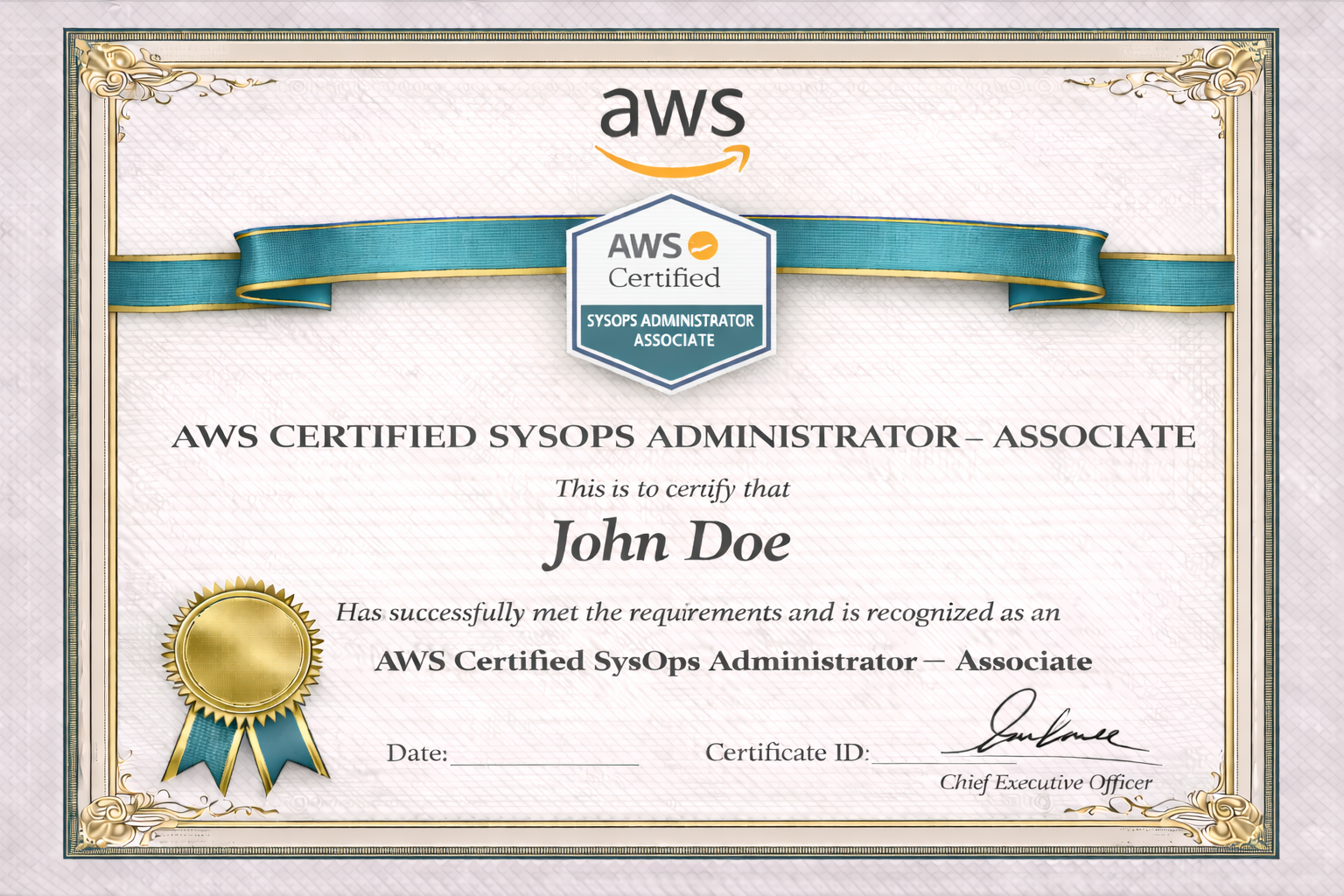AWS Certified SysOps Administrator Course Overview
The AWS Certified SysOps Administrator – Associate certification
targets individuals who handle daily operation and management tasks for
AWS-based systems. The certification establishes your competence in managing
AWS environments through deployment activities, operational duties, security
practices, and monitoring functions. This credential matches the needs of
system administrators, IT operations personnel, and DevOps professionals.
Benefits of AWS SysOps Administrator Certification
- Industry Recognition: The AWS SysOps certification serves as a universal benchmark for cloud operations experience because it demonstrates your competence in managing intricate cloud systems.
- Career Advancement: The certification enables professionals to pursue careers in system administration and cloud engineering with DevOps.
- Higher Earning Potential: AWS-certified professionals achieve better pay because they possess sophisticated cloud management and operations skills.
- Increased Efficiency: The certification helps businesses maintain high efficiency in cloud infrastructure management and system uptime while optimizing performance within the cloud environment.
- Hands-on Skills: The certification proves your competency in carrying out essential activities for managing production AWS platforms.
Scope and Job Market
- Job Roles:
- Cloud Infrastructure Engineer
- SysOps Administrator
- IT Operations Manager
- Cloud Operations Engineer
- Cloud Support Engineer
- Industries:
- Healthcare
- Technology and Software Development
- Retail and E-commerce
- Financial Services
- Government and Public Sector
- Job Market:
The demand for AWS-certified SysOps Administrators continues to rise because organizations depend more on cloud services. Businesses rely on qualified professionals to maintain high availability performance levels and security measures for their AWS infrastructure.





